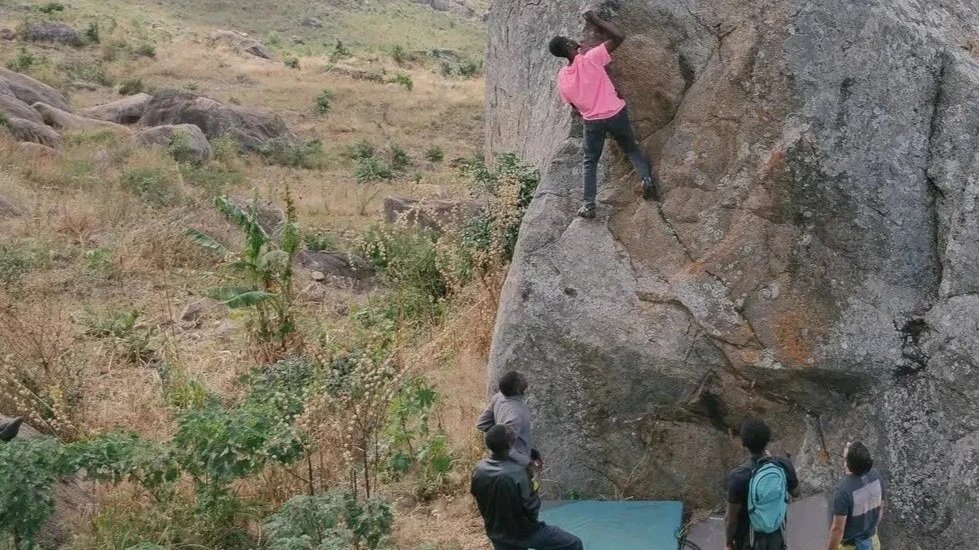Have a Bold Day!
I was tucked into a cozy booth at my co-working space in Mount Airy, NC, coffee in hand, half-listening to the hum of conversation drifting from the kitchen. A small group was huddled over event photos, swapping updates and ironing out plans. After a few laughs and final logistics, they began to pack up. That’s when one man, halfway through the door, turned and called back to the group, “Have a safe day!”
It sounded friendly enough, and in good nature. But as the words hung in the air, I found myself thinking about how complicated the word safety really is.
Of course, this gentleman was wishing his colleagues well, hoping they’d be spared from harm. And yet, for many of our friends and neighbors, real safety is far from guaranteed. The wish to be safe can carry far more weight than the casual tone implied. Safety matters deeply. But I also wonder, can we think about safety a little differently?
Right now, I’m getting ready to embark on a new living situation that’s equally thrilling and terrifying. I’ve made bold moves before, but I was younger, and maybe a little less aware of what could go wrong. So lately, I’ve been thinking about our very human urge to retreat toward the safer choice, to avoid taking risks, to wrap ourselves in practicality like a warm blanket, as an excuse to stay bundled up inside.
As I think about the work we do at Liminal Collaboration, this idea seems to be just as relevant at the community level. It is never the easier choice to jump into the nebulous, liminal space, face uncertainty and ambiguity, try a new approach, or work with people you don’t know or trust. So many things could go wrong, and they often do. But what if more of us had the courage to try anyway? What if we could accept that a first attempt might fail, and be ready to try again? And what if we took those leaps together, creating a kind of “safety in numbers” that actually lowers the risk?
I was reminded of a recent podcast episode I listened to with TJ Powers, who wrote the book, The Dose Effect, and I went down a risk-reward rabbit hole. The science is increasingly clear that taking risks, especially ones we choose, isn’t reckless. In fact, it’s essential for growth. When we try something unfamiliar, our brain’s “dopaminergic system” lights up, releasing dopamine, which fuels learning, motivation, and the creation of new neural pathways. So, taking risks is good for us!
Risk also acts like an emotional workout. Psychologists call it stress inoculation: facing manageable challenges builds resilience, making us better prepared for the unexpected. The more we put ourselves in situations that stretch us, the more confident and capable we feel navigating life’s curveballs. This is true for both individuals and communities.
And when it comes to looking back, people tend to regret the chances they didn’t take far more than the ones they did. In his book, The Power of Regret, Dan Pink calls this boldness regret, the moments we didn't take a risk or seize an opportunity. He describes a three-part framework for being more comfortable with failure, even suggesting we create a “failure resume” to normalize imperfection. The goal is to loosen our grip on perfection so we’re willing to take a risk the next time it matters.
This resonates with me both personally and professionally. I’m someone who loves a plan and the satisfaction of checking off the boxes. But the most fulfilling times in life, the times that truly made me feel alive, have come from stepping into the unknown—heart pounding, mind spinning—without a guarantee it would work out.
The leap seemed to be what mattered, whether I stumbled or stuck the landing.
Perhaps I can take this gentleman’s seemingly innocuous comment and turn it into something bolder—something that challenges not just me, but the collaborative leaders and communities we work with, to be a little more courageous, to take a few more calculated risks, to choose the path that makes your heart race just a little.
Because the safest route might feel comfortable, but it may not take you where you truly want or need to go. So maybe my new send-off will be some encouragement to try something new and a little scary – Be bold today!
Kahneman, D., & Tversky, A. (1979). Prospect theory: An analysis of decision under risk. Econometrica, 47(2), 263–291.
Meichenbaum, D. (1985). Stress inoculation training. Pergamon Press.
Wu, W., Wang, H., Zheng, X., & Wu, Y. J. (2020). Impact of entrepreneurial leadership on innovation behavior. Frontiers in Psychology, 11, 155.
Dan Pink, The Power of Regret, 2022
TJ Powers, The Dose Effect, 2025


